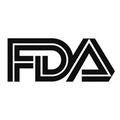FDA Grants Fast Track Designation to Poziotinib for Previously Treated HER2 exon 20-Positive NSCLC
The FDA has granted a fast-track designation to the tyrosine kinase inhibitor, poziotinib for the treatment of previously treated patients with non-small cell lung cancer whose tumors harbor a HER2 exon 20 mutation.

The FDA has granted a fast-track designation to the tyrosine kinase inhibitor, poziotinib for the treatment of previously treated patients with non-small cell lung cancer whose tumors harbor a HER2 exon 20 mutation, according to a press release from Spectrum Pharmaceuticals.1
“There are currently no approved therapies to treat patients with HER2 exon 20 mutations and we are pleased that the FDA has granted fast track designation for poziotinib,” said Joe Turgeon, president and CEO of Spectrum Pharmaceuticals, in a press release. “Momentum is building to unlock the potential of poziotinib.”
The fast-track designation comes after the presentation of new data at the European Society of Medical Oncology (ESMO) Targeted Anticancer Therapies (TAT) Virtual Congress 2021, that showed meaningful activity and a good safety profile of the tyrosine kinase inhibitor (TKI) for this patient population. Cohort 5 of the phase 2 ZENITH20 (NCT03318939) trial looked at 40 patients with NSCLC harboring EGFR or HER2 exon 20 mutation randomized to 10, 12, or 16 mg daily, or 6 or 8 mg twice daily of poziotinib.2
Preliminary data presented at TAT found that the rates of adverse effects (AEs) were lower for patients on the twice daily dosing arms. In comparison, the overall AEs rate for patients on 16 mg daily was 31% versus 21% in the 8 mg twice daily group. Lower AE rates were also observed between the 12 mg daily dosing group and 6 mg twice daily group at 27% and 16%, respectively. Moreover, the twice daily dosing schedules led to reduction in dose interruptions by 38% in the 8 mg group and 52% in the 6 mg group.
The data from the ZENITH20 study also looked at 79 patients with metastatic NSCLC that had EGFR exon 20 mutations treated with poziotinib at 16 mg daily, finding improved tumor activity that suggests improved tumor activity in the HER2 population. The endpoints of the study were objective response rate (ORR) per RECIST v1.1, duration of response (DOR), progression-free-survival (PFS), along with the previously mentioned safety data. Researchers found that 22 patients had an ORR of 27.8% (95% CI, 18.4-39.1%) with a disease control rate of 86.1%.2
The median DOR, after a follow up of 9.2 months with 12 patients remaining on the trial, was 6.5 months. 91% of patients in the analysis had a tumor reduction and the median PFS was 7.2 months.
“We are actively preparing the [new drug application] and delighted with this fast track designation,” Francois Lebel, MD, chief medical officer of Spectrum Pharmaceuticals, said in the release. “We are optimistic about this [twice weekly treatment] strategy and we will provide a data update at AACR in April.”
References:
1. FDA Grants Fast Track Designation to Spectrum Pharmaceuticals’ Poziotinib. News release. Spectrum Pharmaceuticals. March 11, 2021. Accessed March 12, 2021. https://bwnews.pr/3qCOVW5
2. Poziotinib shows promise in EGFR and HER2 exon 20 mutated non-small cell lung cancer. News release. ESMO. March 2, 2021. Accessed March 12, 2021. http://bit.ly/3e7nqRF